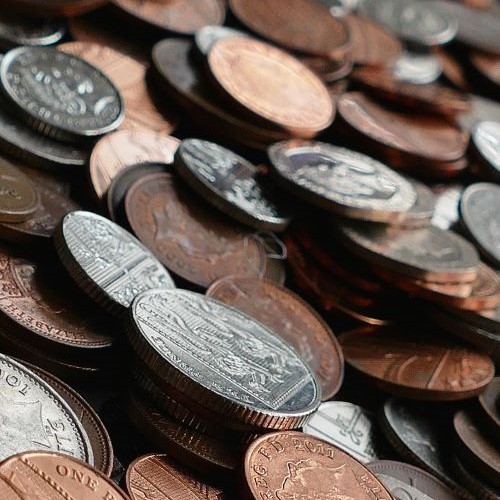
I used to babysit a lot when I was younger – or I would go along with my older sister when she did it. Neighbors in our apartment building, friends of our parents, people we met at church.
Some of these people would have bowls or ash trays full of loose change, just sitting on the coffee table or a stand by the door. Or one of those big water jugs with gallons of coins.
This was a shocking thing to me. They had so much money they could just leave it lying around!? I admit I would skim coins from them. Just a few from each, not enough to make an obvious dent. If any of them noticed, they never called me out on it.
This memory came back to so strongly the other day when I was searching for something and found a stash of coins in every single bag I’ve used in the last year. I probably have $10 in change… I don’t even know how much. Because I didn’t count it. I also found $12 in paper money – and I rarely use cash anymore.
It’s been two decades or more since I had to scrounge up enough quarters to do laundry or buy a loaf of bread with dimes and nickels. My financial status is so very different from what it was.
And it’s been good for long enough that now I can’t be who I was before. I have stopped worrying about being able to pay rent, and I don’t panic when my car makes a funny noise.
But that young girl is still lurking, happy she can buy as many Starbursts and science fiction books as she wants.